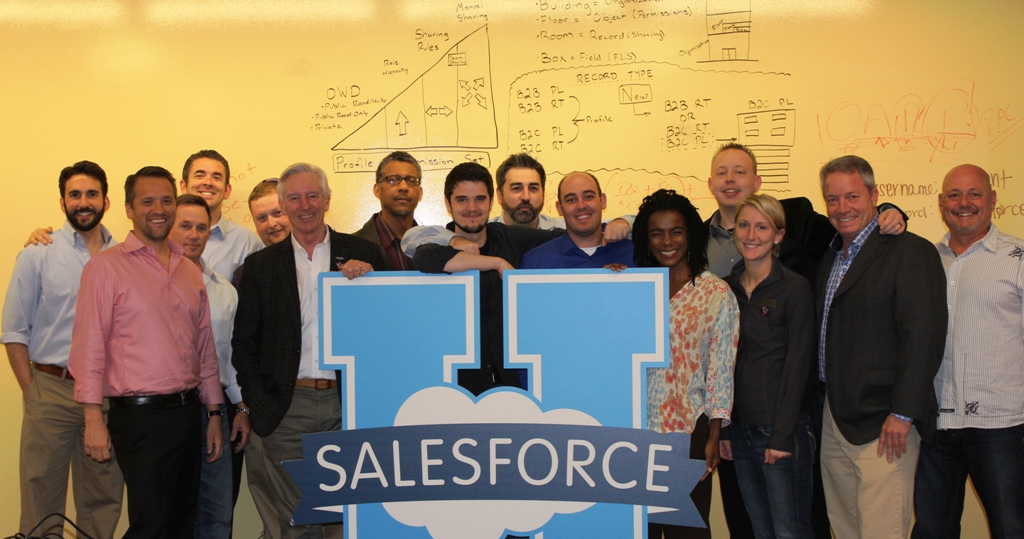
 This guest blog is by Zachary Banks, a Salesforce Product Manager who is passionate about closing the pay gap. Zachary is the driving force behind the Salesforce professional salary survey, which is creating an open-sourced dataset to inform job seekers as they negotiate compensation.
This guest blog is by Zachary Banks, a Salesforce Product Manager who is passionate about closing the pay gap. Zachary is the driving force behind the Salesforce professional salary survey, which is creating an open-sourced dataset to inform job seekers as they negotiate compensation.
Whether you pursue a lifelong tech career in Salesforce, move into management, or shift industries all together, knowing your worth will help you advocate for salary and benefits every step of the way.
In this blog, you’ll learn how to determine your worth, negotiate effectively and find the data you need to do both. I’ve focused on full-time employment, as entrepreneurship, moonlighting and contract positions have other, unique considerations. While some information is specific to Salesforce, it can be applied to other industries.
What is a salary negotiation?
To understand salary negotiation, we’ll start with a base definition. A negotiation is a discussion aimed at reaching an agreement.
There are generally two parties involved in a salary negotiation: You and the business. The goal of the discussion is to reach a mutual agreement on your compensation, which includes both salary and benefits.
The business
The business is the party that has the ability to extend an offer. The business typically has their own definition of a reasonable rate.
I find that many business’ definition of “reasonable” equates to the rate they can pay talent while staying competitive. However, there are also businesses that conduct ample market research to determine what to offer.
There are also outliers at either end of the spectrum. Sometimes businesses want to pay as little as possible, and there are FAANG-like companies paying top dollar.
The talent
The talent (that’s you!) is the party with the ability to provide a service or solve a problem for a business. Your expectation of a rate should be based on unique factors that contribute to your worth.
I would like to say that everyone conducts research to determine their worth, but the fact is, many people go into negotiations cold. Kudos to you for reading this and being prepared!
Your goal is to get the information you need to negotiate for compensation that reflects your skills, experience and value to the company. (And the more you make, the sooner you can retire.)
How to determine your worth
Determining your worth can feel daunting, but if you go step by step, you’ll feel more confident in no time. I recommend starting with three steps:
- Define your expertise
- Talk with a mentor
- Get good data
Define your expertise
Industry expertise is acquired in different ways; it could come from being in the field for many years or having relevant certifications. It might be specific to Salesforce or combined experience from other companies.
No matter the breadth of your expertise, the important part is to define it.
If you apply for a Salesforce admin role that works with a sales team, you’ll have more leverage if you’ve been a business development representative, account executive or sales rep. And you can use that expertise when articulating your worth to a hiring manager.
If you’re a pro Salesforce consultant with over a decade experience, it’s important to have that top of mind during a negotiation. If you know that Salesforce consultancies are billing $200–$500/hr, you can better position yourself to negotiate a higher rate based on your expertise.
Talk with a Mentor
Talking to a mentor can boost your confidence and help you perform well during a negotiation. If you’re a part of a Merivis cohort, you’re already assigned a mentor as part of the program. If not, look for a professional contact who has experience with interviews, negotiations or sensitive conversations; they could be a great fit. The #TrailblazerCommunity is also beaming with individuals who like to help and is a great resource for mentors.
Once you find a mentor, talk candidly with them about the job offer and your goals for the negotiation. Ask questions, bounce ideas off them and practice what you’ll say during a negotiation.
Get good data
As previously mentioned, companies may conduct their own market research to justify their offers. You should be doing your own market research, too! There are plenty of websites to help with your data collection:
On these sites, you can search for a job description, add filters such as years of experience, and get relevant compensation information. There are also sections with sample interview questions.
Disclosing compensation information to these websites is valuable because it helps you establish what to ask for during negotiations. It can also be helpful to discuss compensation with trusted peers or coworkers.
While these sites are helpful, there are also limitations that are important to note. Salary reports are not categorized by gender, gender identity, sexuality, race, ethnicity, disabled/able-bodied or geography. This makes it difficult to determine pay gaps for marginalized groups, making it more difficult for these populations to advocate for equal pay.
Salesforce Salary Survey: Trailblazer Edition
It’s difficult to obtain an open-sourced dataset of Salesforce salary information, and talking to people individually is not a scalable way of obtaining data to use during negotiations.
I feel passionate about using data to close pay gaps and help everyone negotiate for fair pay by supplying them with the data they need. So, instead of complaining about lack of resources, I decided to do something about it, which led me to create the Salesforce Salary Survey: Trailblazer Edition.
With this survey, we will be able to create an open-sourced dataset that can help close pay gaps. The survey gathers anonymous information, including:
- Race/Ethnicity
- Religion
- Sexuality
- Gender Identity
- Disabled/able-bodied
- Mental Health
- Religion
- Socioeconomic factors
- Geographical location for the entire United States
On top of this, I go a step further than just unasked demographic information. I ask for total compensation. When you’re negotiating a new job offer, you aren’t just negotiating salary. You’re negotiating your:
- Health Insurance
- Stock Options / Restricted Stock Units (RSUs)
- 401k
- Bonus match
- Sign-on bonus
- Employee stock purchase plan (ESPP)
- Paid Time off (PTO)
- Volunteer Time Off (VTO)
- Mental health benefits
- Financial wellbeing
- Family wellbeing
- Learning budgets
- Conference budgets
My survey above asks you to disclose as much as possible, so others can learn what to ask for in a negotiation. Sure, your base salary might be $120k, but did you know you could potentially get $200k in stock options, a $10k sign-on bonus or even negotiate your bonus match or 401k contributions? Did you know under the CARES act, your employer could pay your student loans, and that wouldn’t be considered taxable income for you?
These are just a few things to consider when you want to maximize your compensation negotiation. (You’ll want to consult with your tax advisor for any tax-related questions.)
Making the ask
When you go into your next negotiation, I want you to feel prepared and confident. Before you ever walk through the (virtual) door, be sure to determine your worth by defining your expertise, talking to a mentor and getting good data.
And when you get an initial offer, don’t be afraid to counter. The point of a negotiation is a mutual agreement, and good companies expect you to articulate what you need and expect.
Good luck. I’m rooting for you!
P.S. Thanks for helping close pay gaps by contributing to the dataset survey, which closes May 15.


